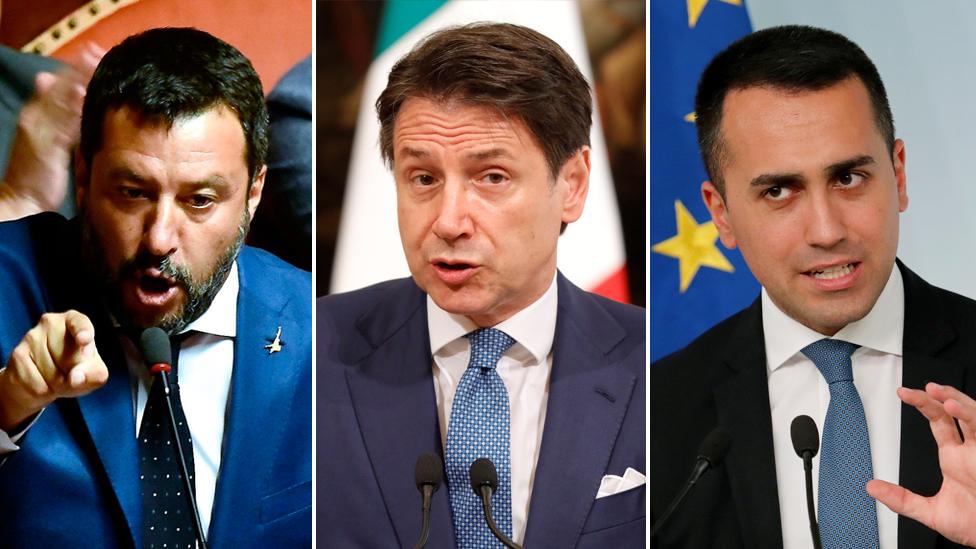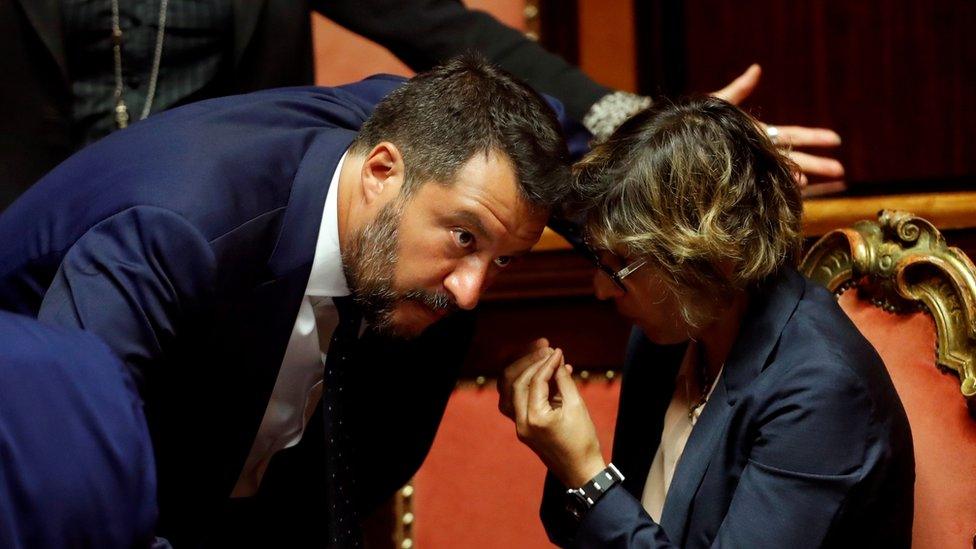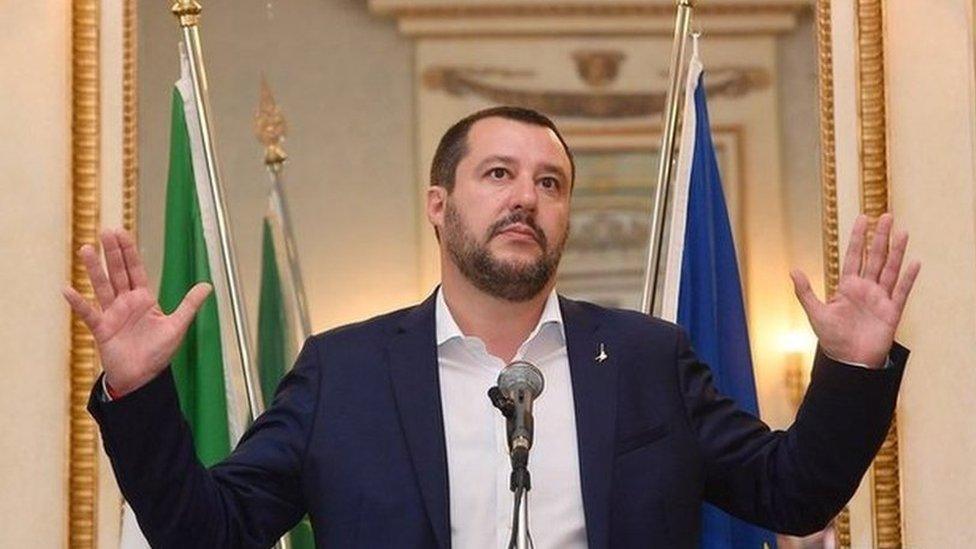Italy government crisis: Fate of coalition to be decided as PM faces removal
- Published

Left to right: Matteo Salvini of the League, PM Giuseppe Conte and Five Star's Luigi Di Maio
The fate of Italy's coalition is set to be decided after weeks of hostility between ruling parties the nationalist League and Five Star.
Italy's independent Prime Minister Giuseppe Conte has been making a statement amid speculation he may quit.
He criticised cabinet colleague Matteo Salvini, who has called for a snap election, saying coalition differences had led to deadlock.
He said the League leader had been seeking new elections for months.
Standing beside him in the Senate, Mr Conte said that after the European elections, which the League won, Mr Salvini had constantly tried to disrupt the work of the government.
"It is irresponsible to initiate a government crisis. It shows personal and party interests," he added.
There have been reports that Mr Conte is planning to resign as prime minister. If a new coalition government is not agreed, it could force fresh elections.
On Tuesday, Mr Salvini tweeted: "We'll see if anyone has made arrangements, if someone wants to govern. The alternative? The vote."
"All politicians are to blame"
Earlier this month the right wing leader tabled a no-confidence motion in the Senate to bring down the coalition with the hope of taking over as prime minister. At a rally of his League party on 8 August, Mr Salvini said the coalition relationship with Five Star was becoming like divorcing parents and "must be divided".
The League has soared ahead of the anti-establishment Five Star Movement in opinion polls, due mainly to the League's stance against illegal immigration.
In European elections held in May, the League came top with 34% of the votes in Italy, whereas Five Star got about 17%.
But Five Star leader Luigi Di Maio has said his party does not fear another election.
In a Facebook post, he paid tribute to the prime minister on what was "a very important day", saying that "whatever happens I wanted to tell you that it was an honour to work together with you in this government".
Mr Salvini earlier called for a quick break with Five Star
Speaking to the BBC, former Italian Prime Minister Mario Monti said Mr Salvini's move to end the coalition was "miscalculated" as he was unlikely to command enough support to lead the country and implement his populist policies.
What happens next?
If Mr Conte offers his resignation during his address to the Senate, President Sergio Mattarella could still refuse to accept it and request the prime minister remain in place to oversee the formation of a new coalition.
But if Mr Conte does not offer to quit, he will face a vote of no confidence.
So if he loses the vote does this mean Mr Salvini then becomes prime minister? Not necessarily.
Five Star has been in discussions with the centre-left opposition Democratic Party (PD) about forming an alternative coalition.
Matteo Renzi, former leader of the PD and prime minister, has returned to frontline politics, saying Mr Salvini must be stopped.
He has called for a technocratic caretaker government.
The coalition talks represent a change of tack for Five Star. Mr Di Maio said recently that "nobody wants to sit at the table with Renzi". This uneasy relationship could make it difficult to form a government.
If Mr Salvini does succeed in bringing down the government, it will be up to Mr Mattarella to decide the next step. He can give the green light to another coalition, if he thinks it can form a stable government, or he can call early elections.
Are early elections likely?
Another complicating factor makes it difficult to say.
Last week, Mr Salvini unexpectedly agreed to a key demand from Five Star to reduce the number of representatives in the two houses of parliament from 950 to 605.
He was hoping Five Star would back his call for early elections, but Five Star and the PD refused to debate it in parliament.
The vote on reducing the size of parliament is due on Thursday 22 August.
If the government falls, the vote cannot take place.
Mr Mattarella has made it clear that he does not want elections before a vote on reducing the number of MPs.
- Published9 August 2019

- Published24 September 2019
